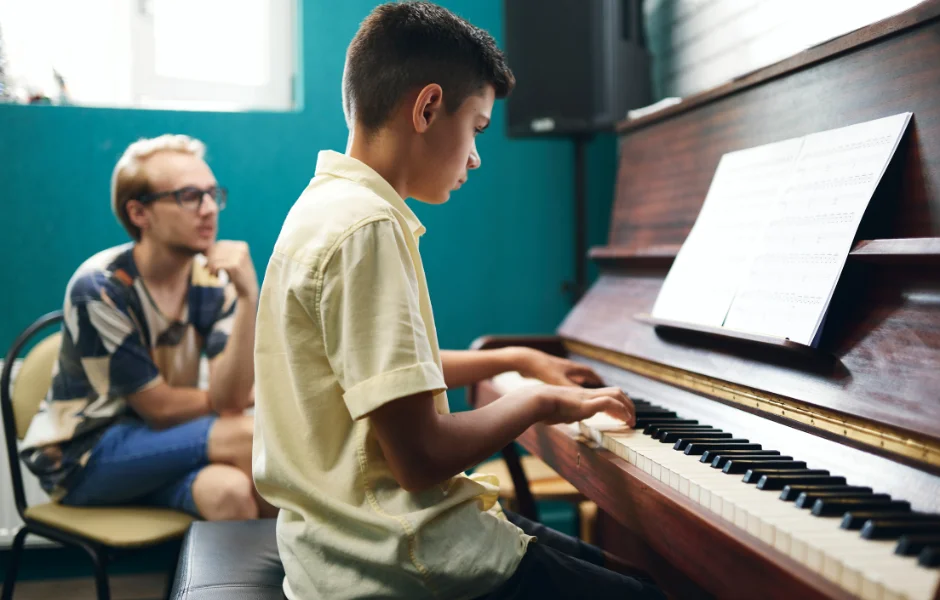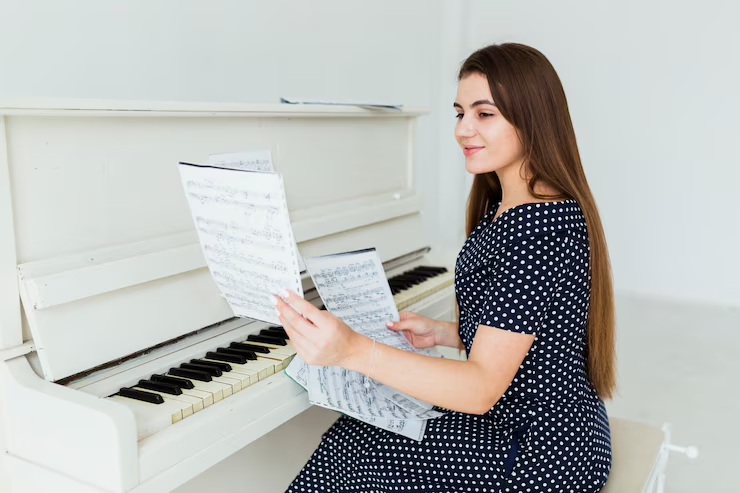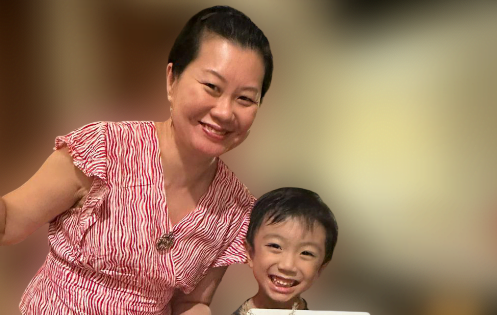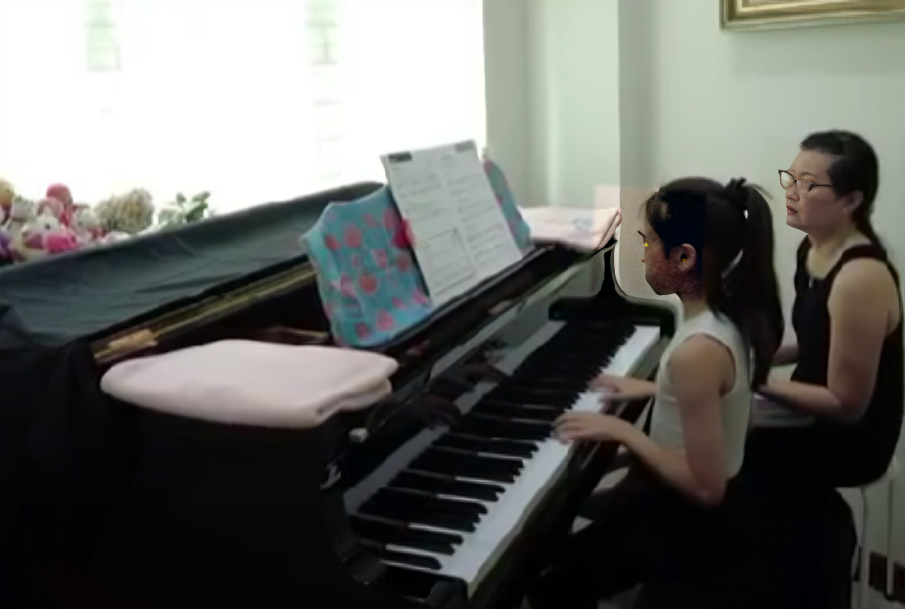As a piano teacher in Singapore, I’ve had the pleasure of witnessing firsthand how music can transform the lives of children. Creating an enjoyable learning environment with fun piano lessons is key to engaging young children and fostering a passion for music. I started teaching piano years ago with a small group of kids, and their joy and progress inspired me to open my own studio. Today, my passion lies in offering easy piano lessons for kids in Singapore, specifically between the ages of 4 to 10.

Benefits of Piano Lessons for Kids
Piano lessons can have a profound impact on a child’s cognitive, emotional, and social development. Research has shown that learning to play the piano can significantly improve memory, concentration, and spatial-temporal skills. These cognitive benefits often translate into better academic performance, particularly in subjects like math and language arts.
Beyond academics, piano lessons foster creativity, self-discipline, and confidence. As children learn to play, they develop a sense of achievement and pride in their progress. This boost in self-esteem can positively affect other areas of their lives, from school to social interactions.
Moreover, piano lessons provide a lifelong hobby and a means of self-expression. Children who learn to play the piano can continue to enjoy and explore music throughout their lives, developing their musical talents and appreciating the beauty of music. Whether they pursue music professionally or as a personal passion, the skills and love for music they gain will stay with them forever.
Why Private Piano Lessons Are Best for Piano Lessons for Kids
I’ve found that private piano lessons are one of the best ways to foster a child’s love for music. In my experience, each child learns at their own pace, and a one-size-fits-all approach simply doesn’t work. When teaching one-on-one, I can tailor each lesson to suit the child’s individual learning style and personality. This allows us to focus on their strengths and areas that need a bit more attention. Additionally, adult piano lessons are available, specifically designed to address the unique challenges and stressors faced by older learners.
One of my students, Emma, was extremely shy when she first started her lessons at five years old. In a large group setting, she would have been easily overwhelmed. But in our private piano lessons, she gained confidence as we progressed slowly at her pace. Now, she’s performing at recitals in front of family and friends, a huge milestone for her!
Private piano teachers in Singapore offer a personalized learning experience. It’s not just about reading notes or hitting the right keys—it’s about connecting with each child and helping them find joy in music.
How to Choose the Best Piano Teacher in Singapore
Choosing the right piano teacher for your child can be a challenge. It’s important to find someone who understands the unique needs of young learners, especially between the ages of 4 and 10. When selecting a piano teacher in Singapore, consider their experience, qualifications, and their ability to make learning fun and engaging.
In my studio, I’ve taught children as young as three, where lessons are playful and interactive. For slightly older kids, I introduce more structured lessons while keeping the process exciting. After all, at this age, music should feel like an adventure, not a chore.

Types of Piano Classes
There are various types of piano classes available for kids, catering to different ages, skill levels, and learning styles. Here’s a closer look at some common options:
- Group Piano Lessons: These classes involve a small group of students learning together. They often focus on fun and interactive activities, making them ideal for younger children who thrive in a social environment. Group lessons can also be more affordable and provide opportunities for peer learning and collaboration.
- Private Piano Lessons: One-on-one instruction tailored to the individual child’s needs and learning pace. Private lessons offer personalized attention, allowing the teacher to focus on the child’s strengths and areas for improvement. This type of lesson is particularly beneficial for children who may need extra support or prefer a more focused learning environment.
- Classical Piano Lessons: Emphasis on traditional classical music and techniques. These lessons often include learning to read sheet music, understanding music theory, and developing proper piano playing techniques. Classical piano lessons are ideal for children who have a keen interest in classical music and wish to build a strong technical foundation.
- Pop Piano Lessons: Focus on popular music and contemporary styles. These lessons are great for kids who enjoy modern music and want to learn to play their favorite songs. Pop piano lessons can be more relaxed and fun, making them a good choice for children who might find classical music less engaging.
- Music Theory Classes: Instruction on the fundamentals of music theory, including reading sheet music, understanding rhythm, and recognizing notes. Music theory classes can be taken alongside piano lessons to provide a well-rounded musical education. Understanding music theory helps children become more proficient and versatile musicians.
What to Expect from Piano Lessons
When enrolling your child in piano lessons, it’s essential to know what to expect. Here are some key aspects to consider:
- A Qualified Piano Teacher: Look for a teacher with experience working with children, a strong musical background, and a patient, supportive approach. A good piano teacher can make a significant difference in your child’s learning experience and overall enjoyment of music.
- A Structured Lesson Plan: A well-organized lesson plan should include a mix of theory, technique, and fun activities to keep your child engaged. The plan should be tailored to your child’s learning pace and interests, ensuring they remain motivated and excited about their lessons.
- Regular Practice: Encourage your child to practice regularly, even if it’s just for a few minutes each day. Consistent practice helps reinforce new skills and build confidence. Establishing a routine can make practice a natural part of your child’s daily activities.
- Progress Monitoring: Regular assessments and feedback from the teacher will help you track your child’s progress and identify areas for improvement. Celebrating milestones and achievements can boost your child’s confidence and keep them motivated.
Preparing Your Child for Piano Lessons
To ensure a successful piano learning experience, it’s crucial to prepare your child in advance. Here are some tips:
- Set Clear Expectations: Explain the importance of regular practice, listening to the teacher, and having fun. Help your child understand that learning to play the piano is a journey that requires patience and dedication.
- Create a Conducive Learning Environment: Designate a quiet, distraction-free space for practice, with a suitable piano or keyboard. A comfortable and inviting practice area can make a big difference in your child’s focus and enjoyment.
- Encourage Curiosity: Foster your child’s natural curiosity about music and the piano. Encourage them to ask questions, explore different sounds, and experiment with creating their own melodies. A curious and inquisitive mindset can enhance their learning experience.
- Establish a Routine: Schedule regular practice sessions and stick to them, even on weekends and holidays. Consistency is key to developing good practice habits and making steady progress.

Top Recommended Music Schools, Piano Studios, and Teachers for Kids
If you’re looking for piano classes in Singapore for your child, there are several excellent teachers and studios that cater specifically to younger students. Each offers something unique, whether it’s specialized programs for kids or teachers with years of experience working with children. Yamaha Music School is a premier choice for piano classes, known for its well-structured curriculum and skilled instructors.
While many well-known studios focus on group lessons, I recommend choosing a private teacher who offers personalized attention. Teachers like Adeline Yeo, a well-respected name in Singapore, and smaller, intimate studios, can give your child the focus they need to thrive in music.
Average Cost of Private Piano Lessons in Singapore for Kids
The cost of piano lessons in Singapore can vary significantly based on factors such as location, the teacher’s experience, and whether the lessons are private or group-based. Typically, private lessons range from $50 to $250 per session for kids. For better deals, you can reach out nearest private piano teacher near you. The investment is worth it, especially when you see your child growing in their musical abilities.
For example, one of the parents at my studio shared that after a year of lessons, not only had her son developed a keen sense of rhythm, but he also started composing his own little songs at home. Moments like these are priceless.
Overcoming Common Challenges
Every child may face challenges during their piano learning journey. Here are some common obstacles and tips for overcoming them:
- Lack of Motivation: Make practice sessions fun and engaging. Incorporate games, rewards, and positive reinforcement to keep your child motivated. Setting small, achievable goals can also help maintain their interest and enthusiasm.
- Difficulty with Hand-Eye Coordination: Break down complex tasks into smaller, manageable steps. Provide plenty of positive reinforcement and patience as your child develops their coordination skills. Practice exercises that specifically target hand-eye coordination can be beneficial.
- Frustration with Slow Progress: Celebrate small victories and remind your child that learning to play the piano takes time, effort, and patience. Encourage them to focus on their progress rather than perfection. Sharing stories of famous musicians who faced similar challenges can also be inspiring.
- Scheduling Conflicts: Be flexible and work with the teacher to find a schedule that suits your child’s needs and your family’s lifestyle. Consistency is important, but it’s also essential to balance piano lessons with other activities and commitments.
By understanding the benefits, types, and expectations of piano lessons, preparing your child, and overcoming common challenges, you can help your child thrive in their piano learning journey and develop a lifelong love for music.

Success Stories: Parents’ Experiences with Private Piano Lessons
There’s nothing quite as rewarding as hearing from parents about how much their children have grown through piano lessons. One mother, whose son I taught for over two years, recently told me how he now practices on his own every day without being asked. She said, “I never imagined he would be so motivated and excited about playing the piano. Your patience and encouragement have made all the difference.” Her son has truly become a happy pianist, finding joy and satisfaction in his piano learning journey.
Another parent shared how their child struggled in larger music classes before switching to private lessons. “He was always lost in the group and felt frustrated. But with your personal guidance, he now looks forward to each lesson!”
These stories remind me why I love what I do. Watching kids develop a lifelong passion for music is beyond rewarding.
Getting Started: How to Book a Trial Piano Lesson
If you’re ready to give your child the gift of music, the next step is simple. Book a trial piano lesson and see how they respond in a private setting. Whether your child has prior music background or is a complete beginner, private piano lessons can be tailored to their experience level. Whether your child is just starting or has had some previous experience, private piano lessons offer them the best environment to grow and flourish musically.
You can enquire about piano lessons here, or learn more about how my studio and others in Singapore can offer your child an unforgettable musical journey. Teaching children has been the most fulfilling part of my life, and I would love to share that passion with your family.
In the end, it’s not just about learning to play the piano—it’s about building confidence, expressing creativity, and discovering a lifelong love for music. Let’s embark on that journey together!




